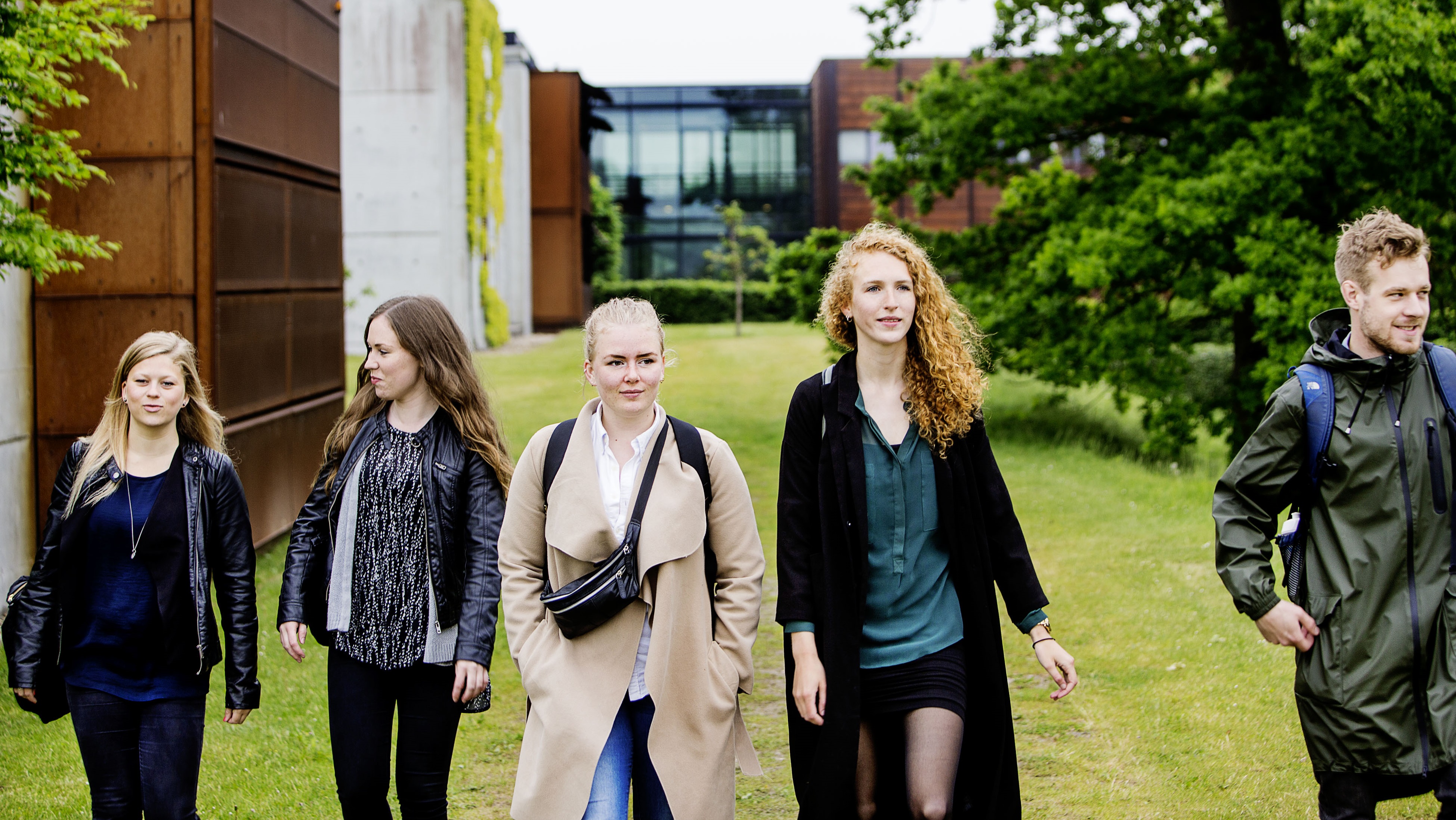
In 2012, when the World Happiness report was first launched, Denmark was crowned the best place to live, and today it’s still considered home to the world’s most cheery people. The country has a lot offer; an individual aesthetic, reflected in Danish design, fashion, art and architecture; a unique history and culture – think cycling and Nordic crime dramas; Quality of life, with a 19 euro minimum wage; and of course Hygge, a phenomenon that can’t have passed many people throughout 2016. Dozens of books have been published about it, and it’s also received a mention in countless articles, particularly now, as we’re consumed by the festive Christmas spirit.
Clearly Denmark is a popular destination for people to relocate, but it’s also an extremely popular place to study. Denmark is in the top 10 list of ‘Best Countries for Education’ 2016, one of the most LGBTQ-Friendly Study Abroad Options in the World, and its universities are among the best at producing employable graduates. Students of the University of Southern Denmark (SDU) consider Denmark a safe, happy and extremely friendly country with a strong notion for fairness and equality, as well as a great place to receive an outstanding education.

Image courtesy of the University of Southern Denmark
SDU welcomed its first students in 1966 and has since developed into an established university with five faculties, and more than 4,000 employees across campuses in Odense (birth-place of Hans Christian Andersen), Slagelse, Kolding, Esbjerg and Sonderborg, as well as 32,000 students – almost 20 percent of whom derive from overseas. With around 115 programmes ranging from the humanities to engineering, the university offers prospective students a range of unique opportunities. Particularly popular are courses within the Faculty of Business and Social Sciences which currently hosts more than 12,500 students on their way to achieving a bachelor’s, master’s, higher diploma, executive master’s or PhD degree in the field. So what exactly makes the department so popular?
Choice
Students have the freedom to choose electives that inspire genuine interest, while mandatory classes ensure they are getting a solid academic grounding in their chosen field. The Faculty of Business and Social Sciences offers more than 20 bachelor degree programmes and more than 40 master’s programmes, while the Faculty’s PhD-School covers all major research areas.

Image courtesy of the University of Southern Denmark
High Academic standards
Although there’s a broad choice of electives and practical elements on pretty much every course, classes at SDU are of an extremely high quality, and boast rigorous academic focus. Small class sizes contribute to teaching quality, on top of the fact that the Faculty has over 300 academic staff involved in research and teaching. It also employs external lecturers with experience in the field, providing students with brand-new insights and perspectives, as well as keeping the Faculty and its courses both up-to-date and grounded in current research and development.
Informal learning space
Students at SDU have the opportunity to participate in real discussions with their lecturers, who generally consider themselves more like friends than teacher and student. This relationship between can seem quite different to what’s found in countries like the UK, where many tutors have designated office hours, rather than an open door policy. At SDU, students call their teachers by first name and receive advice as and when they need it, creating a warm and comfortable atmosphere. There is also a focus on learning by doing, with project-based lectures allowing students learn through active participation as well as their mistakes. Due to the friendly, safe learning environment these mistakes can be built upon and utilised to the students’ benefit.

Image courtesy of the University of Southern Denmark
Multicultural environment
Aware that national and global requirements demand graduates who not only possess a sound knowledge base, but also linguistic and intercultural skills, the Faculty of Business and Social Sciences seeks to create a supportive international environment. Their international programmes, as well as a large number of exchange students coming from universities worldwide, means many programmes are comprised almost solely of international students. Teachers and students communicate in English so everyone can get involved, while students can enjoy learning about different cultures from all four corners of the globe. The international environment and inclusive atmosphere are definitely key attractions for the Faculty of Business and Social Sciences, and for SDU as a whole.
Facilities
Finally, the facilities within the Faculty of Business and Social Sciences and the rest of the university, provide SDU students with heaps of unparalleled opportunities. The Faculty is well-equipped for its diverse programme portfolio, with its Research Support Centre offering support to staff, Master’s and PhD students, while each campus also has many extra-curricular opportunities to offer.
At the Odense campus, students can be part of Filmklubben, the university film club. They can also join student-political organisations, or go to Fredagsbaren – the Friday bar, which was first established in the mid-80’s, or even take a dip in the pool which is free for students between 8am and 3pm. There many of clubs and organisations students can delve into, allowing them to make social connections, learn new skills, broaden their minds and contribute to the friendly environment focused on students’ needs’ which SDU offers.
Want to learn more about SDU and its word-leading faculties? Click here to get a closer look of what SDU can offer, and become another smiling face in the world’s most cheerful nation.
Follow SDU on Facebook, Twitter, Instagram, YouTube, Pinterest and LinkedIn
Liked this? Then you’ll love these…
Discover Odense: A fairy tale student city
Business: Combining professional development with academia







